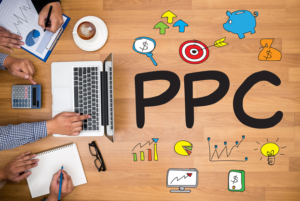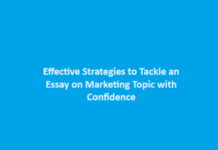
Are you fully committed to your search engine optimization strategy?
SEO is more than just website optimization, blogging, and link building. The best SEO strategies leverage organic and paid methods.
Paid SEO is one of the most cost-effective strategies for bootstrapped small businesses, with nearly 80% of marketers reporting higher conversion rates with PPC.
A PPC campaign positions your brand above regular organic SERP results. Are you ready to reap the benefits? Start with this quick guide to planning a PPC campaign!
1. Set Your PPC Goals
Before you do anything, get your house in order. The first step of any marketing campaign, PPC or otherwise, is to set clear goals.
Marketing objectives keep your eyes on the prize. They also prevent you from wasting money on the wrong marketing strategies.
Suppose you want to increase appointments for your dental practice; this is an example of a marketing objective. What type of marketing strategies could achieve this goal?
New clients are much more likely to search for local dentists on Google. Therefore, an Adwords call-only campaign would make more sense than a Linkedin marketing strategy. You can also monitor and analyze your PPC campaign results from your Adwords dashboard.
If you need help clarifying your goals, the PPC experts at the XPM Agency suggest a collaborative and customized approach to PPC.
2. Discover the Best Keyword Opportunities
Keyword research is critical for website and content optimization, and PPC is no different. Conduct in-depth research before writing and launching ad copy.
Like organic SEO, choose keywords with good search volume and low competition. Targeting long-tailed geographic keywords also work, despite lower search volume.
The big difference between PPC and organic SEO is keyword bidding. You must bid on keywords before publishing your PPC ads. The greater the competition, the higher the bid.
Fortunately, Google’s keyword planner reveals competition level and minimum bids for each researched keyword. You can also use paid SEO research tools for additional insights.
3. Write Compelling Ads
Perfect keyword targeting isn’t enough to drive conversions. You need compelling ads to seal the deal.
Look at successful PPC ads in your niche. What do they have in common? You’ll notice things like power words, calls-to-action, incentives, and product benefits.
You don’t need to include technical specifications in your PPC ads; this information is already included on your product page. Focus on benefits instead, like improved mobility, more energy, or a whiter smile.
Scheduling also matters. You don’t want to waste your budget on the wrong time windows. A/B test your campaign to discover the best PPC schedule.
4. Analyze Your PPC Campaign Results
Analytics is the best way to discover schedules, strengths and weaknesses, engagement, and campaign performance.
Analytics isn’t a one-time deal, either. Daily real-time monitoring is essential for successful PPC campaigns. You must make adjustments at a moment’s notice, and you can’t do that without consistent tracking.
Increase Conversion Rates with PPC
Don’t sleep on paid SEO. Enjoy the benefits of a PPC campaign today!
Remember, organic and paid SEO goes together like peanut butter and jelly. Check out the blog to discover even more online marketing strategies for your business.



















